The Old Copper Bucket
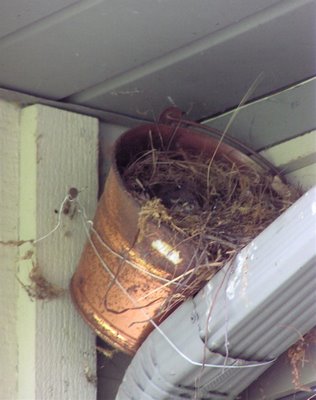 Friday, May 19: A young Carolina wren on its last full day in the nest, peeking out at the world.
Friday, May 19: A young Carolina wren on its last full day in the nest, peeking out at the world.I prepared this post before we left for Delaware, knowing we'd be fried crispy on our return. We're back, so happy to be home, picked our dinner out of the garden, checked my phoebe nest (hatched!), checked the 6-egg bluebird nest (hatching!), unloaded the car, watered the orchids, threw some pot pies in the oven for the kids, started the first load of laundry. See you sometime tomorrow, in between about ten loads of laundry and grocery shopping and returning all the baby bird and box turtle calls that came in while we were gone.
I remember this little copper bucket from our house in Kansas City, Kansas. There was a variegated pothos (philodendron) in it, which rambled all over our brick fireplace on Wenonga Road. How this bucket stayed with me through countless moves I'll never understand. It was pretty much useless, having a hole in the bottom. But I kept it, maybe because I remembered it from when I was about four.
Three years ago I looked up and noticed a bunch of bark and twigs on our sloping downspout by the front door. A Carolina wren had been trying and trying to make its nesting material stay in the triangle between the downspout and the eave, and failing. I looked at the wren, and our eyes met. "Hang on a minute," I said to her. I ran to the garage, grabbed a ladder, the bucket, some wire and a roofing nail. I skibbled up the ladder and wedged the bucket up under the eave, and secured it with a wire, while she watched from her perch on the gutter. Satisfied that the bucket was secure, protected from weather, and safe from snakes and raccoons, I climbed back down the ladder. I was still folding the ladder only a few feet away when the wren grabbed a bill full of nesting material and stuffed it in the bucket. It was so clear to me that she knew I was trying to help, and thought I had the perfect solution for her problem. I went so far as to wonder whether she had left the festoons of bark, twigs and leaves on the downspout--clearly visible in our foyer window-- as a call for assistance. I wouldn't put it past a Carolina wren to do that. That afternoon, the pair stripped all the moss off my bonsai tree pots, and stuffed that in, too. Their nest was finished by the next morning, and they have nested in it ever since.
Saturday was fledging day for the four baby wrens. I think they were only about 11 days old, with lots of down still adorning their crowns. They spilled out of the bucket and hopped around on the ground and the front stoop. Twice, Chet Baker tried to round them up, nosing them and sniffing them. He could so easily have snapped them up, but he knows that birds are special to me, and restrains himself...The fledglings were completely unfazed, squeaking and begging from their parents as we stood right by them. They'd been raised right under our noses, so what was there to fear? I kept Baker occupied elsewhere for the rest of the afternoon.
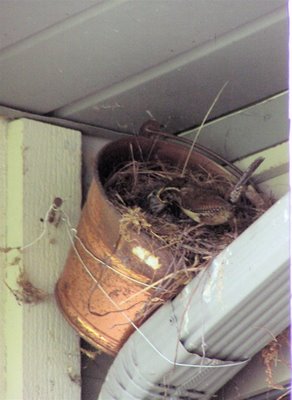
As night fell, they were still on the ground, and I fought the urge to gather them up and take them inside for the night. I didn't want them to lose contact with their parents. When I went out this morning, they were gone. I heard their father singing in the orchard, and occasionally scolding, and I knew that the babies had been led, in the way of wrens, away from danger and into deep cover. I relocated them Monday midday, in the thickest cover in our abandoned orchard, squirking and begging from the adults. It never ceases to amaze me how much ground a baby Carolina wren can cover, given the right coaching by its parents. We won't see them for a couple of weeks, but they'll be back, I've no doubt. They'll remember where the suet dough is.
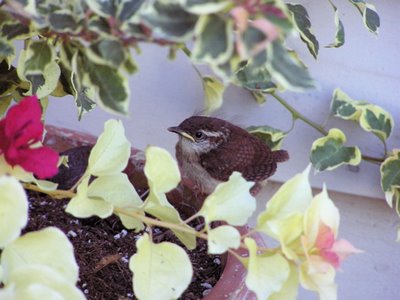
In four years, I've never cleaned out the bucket, leaving that to the fastidious wrens. But I think it's time now. They'll have no trouble filling it back up. I've got a fresh batch of moss on the bonsais, just waiting for them.

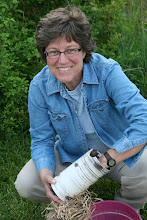

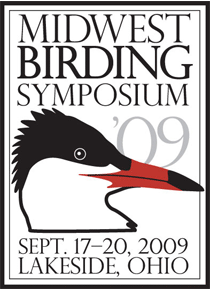


<< Home